The question of whether canines can consume fungi, whether raw or cooked, must be approached with an abundance of caution. Dogs’ bodies react to foods differently than humans, and what might be a delectable delicacy to a human could conceivably be fatal to our furry friends.
Therefore, understanding the potential dangers associated with mushroom consumption is crucial for every pet owner. Never let your dog eat something if you suspect it may be poisonous!! Better safe than sorry as the saying goes.
Common Risks
Mushrooms vary significantly in their toxicity levels. While some may merely cause mild discomfort or temporary sickness, others contain potent toxins that could lead to severe health issues or even death.
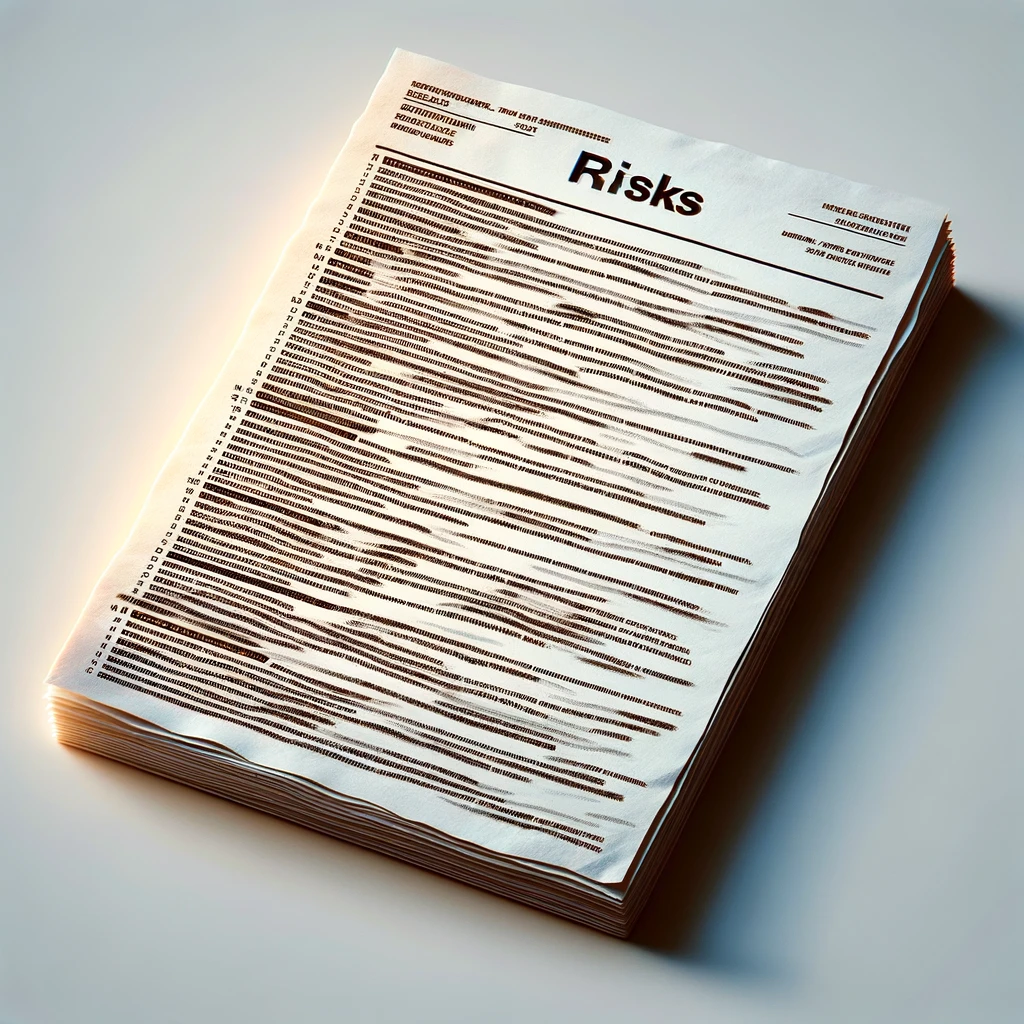
When it comes to the kinds of mushrooms dogs can eat, store-bought varieties like button mushrooms (white mushrooms), portobellos, and shiitakes are generally safe when thoroughly cooked. However, cooking them does not negate all risks; if your dog has a sensitive stomach or specific allergies, even these could induce adverse effects.
Wild mushrooms present another level of concern entirely; only an estimated 50-100 out of thousands of species are deemed toxic for dogs. Yet those few potentially lethal types abound in environments where pets often roam free – forests, parks and backyards included.
The danger lies not only in the possibility that your pet might ingest these harmful varieties but also in the challenge of correctly identifying them amongst their benign counterparts.
Furthermore, it’s important to remember that even non-toxic wild mushrooms can pose risks if they’ve been exposed to pesticides or other chemicals in their environment.
Given these uncertainties and hazards inherent in both wild and certain store-bought types – whether cooked or raw – it’s advisable that owners err on the side of caution when contemplating: can dogs have mushrooms? While some types such as white mushrooms may be safe for canine consumption when properly prepared (cooked), the spectrum of risks related to mushroom ingestion necessitates careful consideration from conscientious dog owners.
Store-Bought vs. Wild
The question of whether dogs can consume mushrooms often brings us to a crossroad: store-bought or wild? Simultaneously, we must grapple with another query: can dogs eat cooked mushrooms or should they be fed raw? So, let’s dive in!
PetMD had this to say on the subject:
“Mushrooms you buy at the store are fine for dogs to eat. But wild mushrooms can be poisonous to dogs, just like they can be poisonous to us. So if you’re hiking out in the woods or have a large backyard where wild mushrooms sprout, make sure your dog isn’t sniffing around them.” (1)
Store-bought mushrooms, also known as cultivated varieties, are generally safe for canine consumption. Notably among these are white button mushrooms that frequently grace our kitchen tables.
Can dogs eat white mushrooms? Yes, indeed.
These fungi are non-toxic to our furry friends and can be fed in moderation. Portobello and shiitake fall into the same category of safe edible fungi for dogs too.
But remember that these need to be well-cooked before serving them to your pet; raw ones could still hold potential risks. So can dogs eat cooked mushrooms then?
Yes, cooking is indeed recommended when it comes to store-bought variants like portobello and shiitake. The process not only enhances their digestibility but also nullifies any small amount of toxins potentially present in them.


Now over to the wild side – an area where the answers aren’t so straightforward. As opposed to their cultivated counterparts, wild mushrooms pose a significant risk for canines due to a cornucopia of unknown factors including varied species all with their own different effects on a dog’s system.
Some are harmless and others potentially lethal, so it is recommended that one abides by the rule ‘when in doubt, leave it out‘.
Even if you think you’ve found an equivalent species in the wild as those sold in stores (for example portobello), don’t be tempted into thinking your canine companion can safely consume them too.
Store-bought varieties, when cooked, are typically safe. On the other hand, wild ones remain a potential gamble best left untouched in regards to your precious pet’s health.
Safe Varieties
In the arena of human gastronomy, the mushroom looms large and delicious, a staple ingredient capable of lending an earthy flavor to a myriad of dishes. Questions arise, however, when considering if this culinary delight can transition safely into the realm of canine consumption.
Much depends on the variety and preparation method. There are certain types of mushrooms that dogs can safely eat.
Notable among these are store-bought varieties such as button mushrooms, portobello mushrooms, shiitake mushrooms, and white mushrooms.
These varieties are non-toxic to dogs when they are cooked properly as some raw mushrooms contain a carcinogenic compound called agaritine which is significantly reduced through cooking.
These types of common store-bought fungi are safe for our canine companions when prepared appropriately devoid of any additives or spices harmful to dogs.
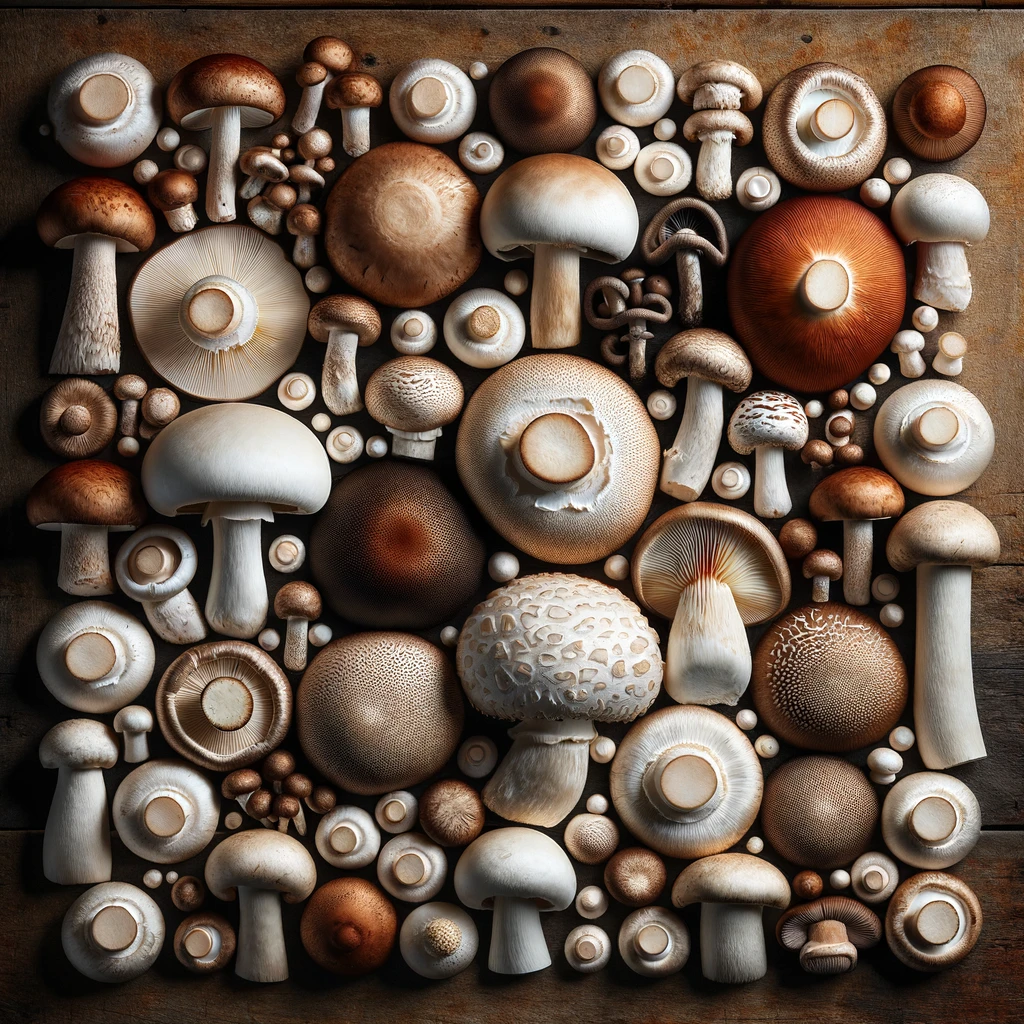
While it’s important to note not all store-bought varieties may be as innocuous as those aforementioned; for instance cremini or baby bella mushrooms might pose risks due to their closer relation to certain toxic wild variants.
This reinforces the key principle that one should only ever offer their dog meticulously chosen and well-prepared edible fungus. So in essence – yes, your faithful four-legged companion may indulge in these safe varieties but remember always: moderation is key.
Nutritional Value
Diving into the nutritional value of mushrooms, it is essential to remember that they are replete with a plethora of vitamins and minerals beneficial not only for human consumption but also for our canine companions. Some of these nutrients include protein, fiber, Vitamin D, selenium, and antioxidants.
Dogs can benefit from these nutrients when mushrooms are properly prepared and served. Considering the question “can dogs eat cooked mushrooms?” it’s critical to recognize that heat helps to eliminate some toxins present in certain mushroom varieties like portobello.
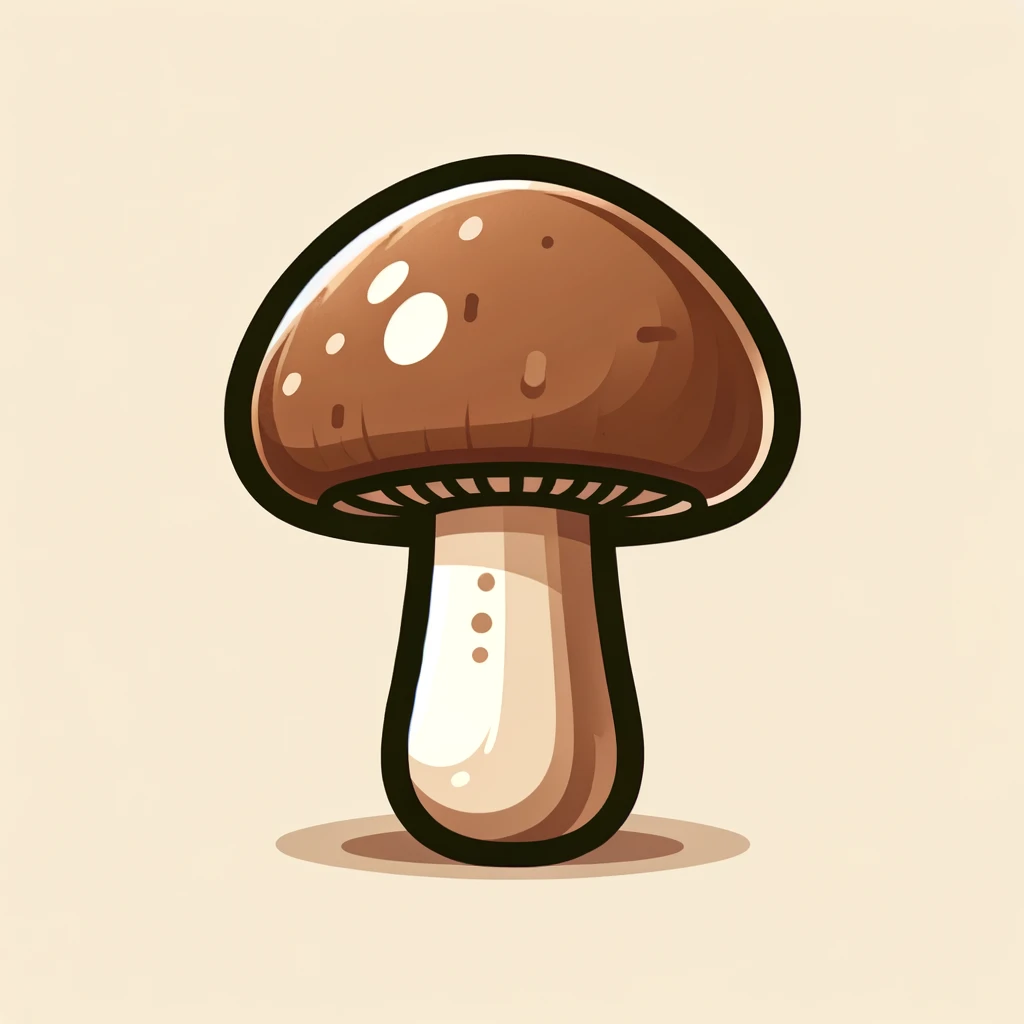
Thus, cooking mushrooms before serving them to your dog may reduce potential risks associated with raw consumption. It is equally vital to note that dogs can have cooked mushrooms free from seasonings or additives which might otherwise pose a threat to their health.
When pondering “can dogs eat shiitake mushrooms or white mushrooms?”, the answer resides in mindful preparation and moderation.
Shiitake’s medicinal properties may provide immune system support while white button mushrooms offer selenium and potassium – two crucial minerals for maintaining overall health in dogs. However, as much as we’d love our furry friends partaking in our culinary delights, it’s crucially important to remember that not all types of this fungi family are safe for them.
Health Benefits
From a nutritional perspective, mushrooms can be a healthy addition to a dog’s diet. The caveat is that these should be store-bought varieties such as white, cremini, or portobello mushrooms that have been cooked well.
Similar to humans, dogs can benefit from the nutrients found within these fungi. Mushrooms are low in calories and fat while being high in dietary fiber. They also contain essential vitamins and minerals such as the B-vitamins, selenium, copper and potassium.
Cooking not only makes the mushroom’s nutrients more bioavailable but it also neutralizes potential harmful residues.
One might wonder if specific types would be more beneficial than others; for instance, can dogs eat portobello mushrooms? Yes – safe varieties like Portobello are packed with antioxidants and could contribute to canine health by strengthening their immune system.
Turning our attention to other edible mushroom types we ask: Can dogs eat shiitake mushrooms? Shiitake are revered in Eastern cuisines for their unique umami flavor and medicinal properties.
Cooked shiitake mushrooms could provide significant health benefits extending beyond basic nutrition due to their high content of polysaccharides, terpenoids, sterols and lipids which exhibit antiviral, antibacterial and anticancer properties.
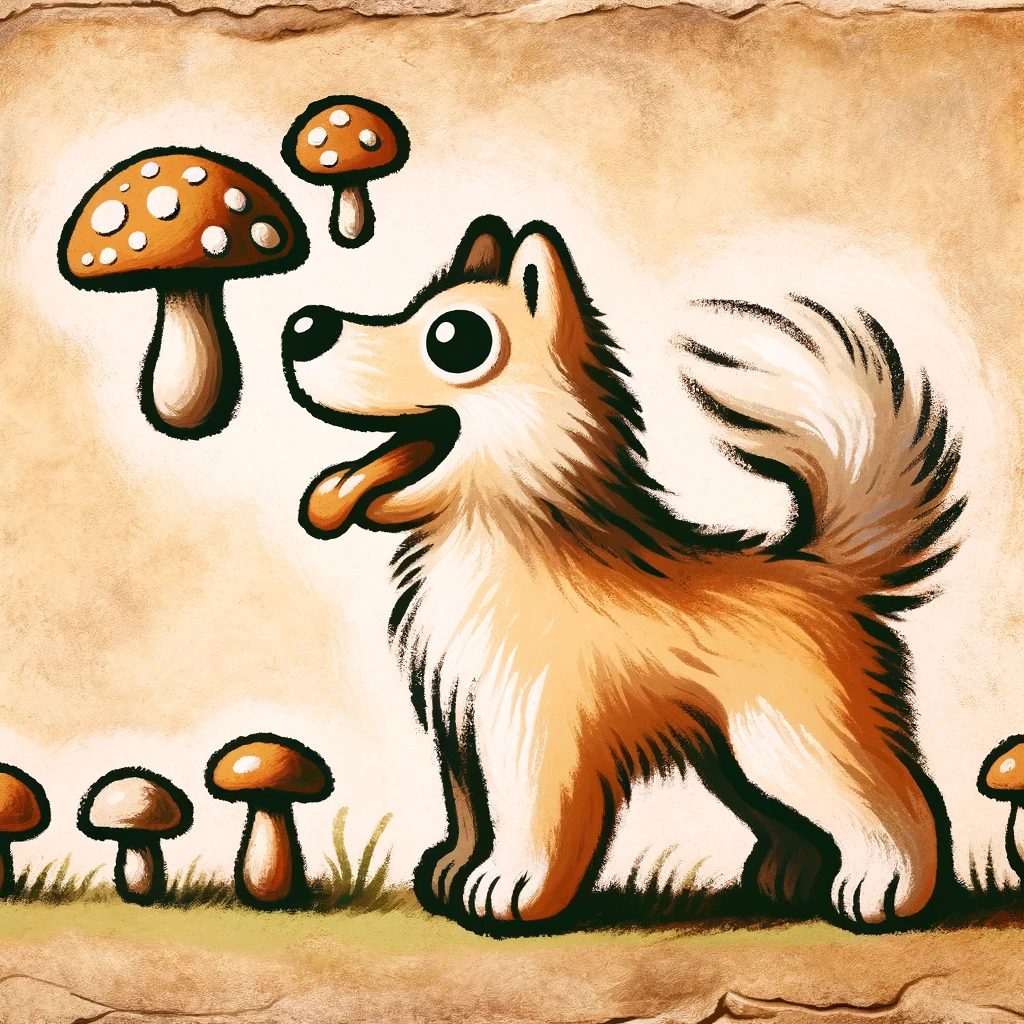
Unsurprisingly, these too are safe for canine consumption after cooking and offer a good dose of nutrients including Vitamin D which is crucial for bone health in dogs. Armed with this knowledge one may now confidently conclude that not only can dogs have mushrooms cooked but they could benefit greatly from this timely inclusion into their diet.
Poisonous Types
A discerning dog owner ought to be acquainted with the types of mushrooms that are perilous for their canine companions. Many mushroom varieties can be noxious, even lethal, when consumed by dogs.

According to PetMD, here are the most common varieties of poisonous shrooms for dogs:
“Not all wild mushrooms are poisonous to pups, but the list of those that are is long. Here are some of the common shrooms to stay away from throughout the U.S.:
- Amanita phalloides (death cap mushroom)
- Amanita bisporigera (death angel)
- Chlorophyllum molybdites (false parasol)
- Galerina marginata (funeral bell)
- Gyromitra esculenta (false morel)
- Amanita muscaria (fly agaric)” (2)
The Amanita phalloides, commonly known as the Death Cap, is a particularly notorious example. This variety contains a potent toxin that can readily lead to severe liver damage or mortality in dogs.
Another dangerous variety is the Amanita muscaria or Fly Agaric mushroom known for its distinctive red cap dotted with white spots. For those wondering if dogs can eat white mushrooms – it’s essential to clarify that commercial supermarket varieties, including white button mushrooms, are generally safe; they become toxic only if dogs ingest them in large quantities.
However, it’s crucial not to confuse these harmless white mushrooms with the deadly “Destroying Angel” or “Death Angel”, another member of the Amanita family.
While portobellos and other edible types such as shiitake aren’t intrinsically harmful for dogs, their prep may make them unsafe. Cooking these fungi often involves ingredients like onions and garlic that are detrimental to dogs’ health.
Also remember that dried versions of such edible kinds could pose a choking hazard or lead to gastrointestinal blockage in your pet. While certain types of store-bought and cooked mushrooms may pose minimal risk – such as portobello – many others found outside could prove fatally toxic for your four-legged friend.
**Please note that this is not an exhaustive list of poisonous mushrooms, simply a few examples.
Symptoms of Poisoning
Recognizing the symptoms of mushroom poisoning in dogs is vital for their survival. Dogs are naturally curious creatures, and their adventurous palates might lead them to ingest something unsuitable, like a poisonous wild mushroom.
Signs of mushroom toxicity depend on the type of fungus ingested and can range from mild to severe. The first indication that your dog might have consumed a toxic mushroom is gastrointestinal distress.
According to PetMD: “If your dog ate a poisonous mushroom, he’ll likely exhibit some of the following symptoms:
- Vomiting
- Diarrhea
- Abdominal pain
- Weakness
- Lethargy
- Yellowing of the skin (jaundice)
- Uncoordinated movements
- Excessive drooling
- Staggering gait
- Seizures
- Coma
- Death” (3)
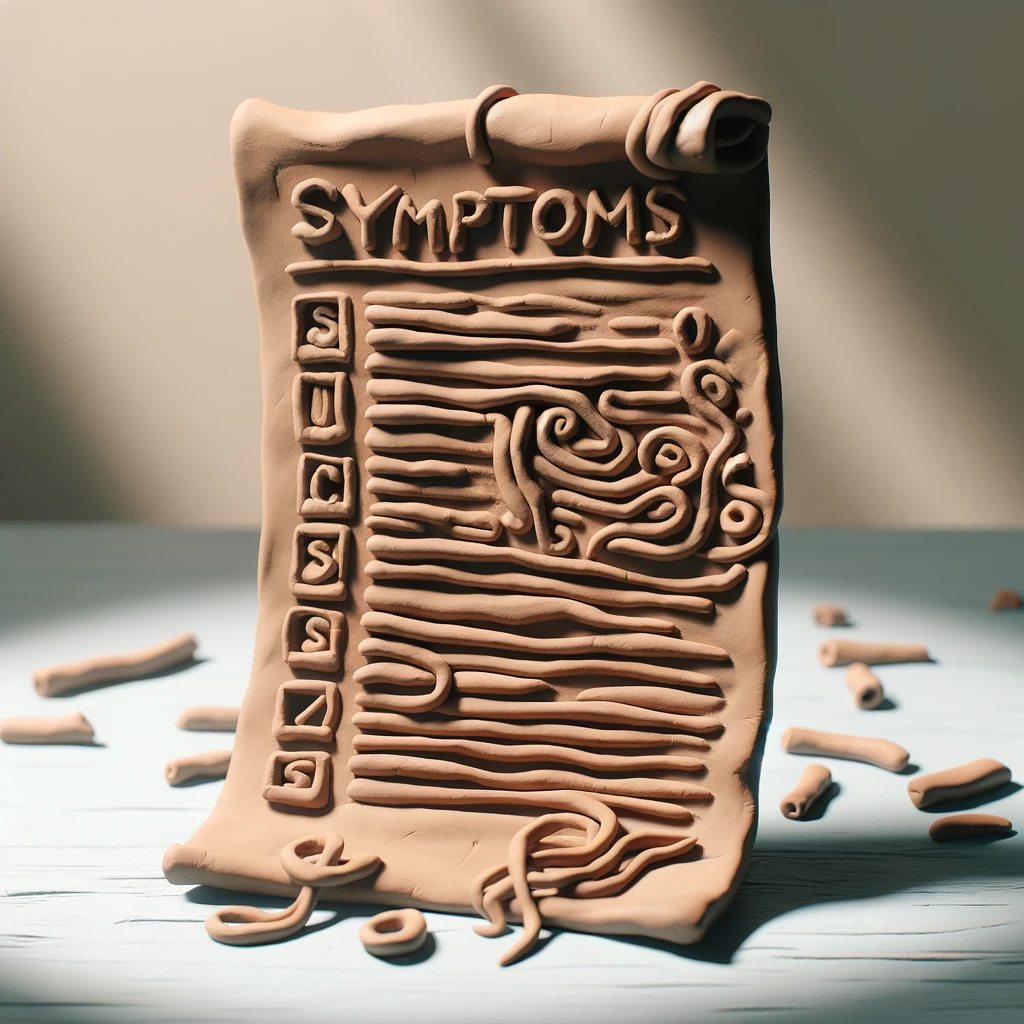
This could manifest as vomiting or diarrhea within the first few hours post-ingestion, often accompanied by signs of abdominal pain such as whining or pacing.
It’s important to note that these initial symptoms can mislead pet owners into thinking their dog merely has an upset stomach from eating something unusual – like white mushrooms or shiitake mushrooms not typically included in their diet.
As time progresses, more severe symptoms may develop. These can include excessive salivation, uncoordinated movements or difficulty walking, lethargy or hyperactivity, and changes in heart rate or breathing patterns.
In severe cases where dogs have consumed particularly lethal species like Amanita phalloides (commonly known as the death cap), they might experience seizures or fall into a coma. Certain types of mushrooms can cause specific symptoms too.
For example, if a dog eats a hallucinogenic type like Psilocybin (also called magic mushrooms), they may show signs of hallucinations such as restlessness, irrational fear responses, and erratic behavior. Moreover, some pet owners might wonder “can dogs eat cooked mushrooms?” Thinking that cooking them somehow neutralizes any harmful toxins… but you should not feed a dog hallucinogenic types.
All these queries drive home the point that while some domestic mushrooms like white and shiitake mushrooms might be safe for dogs when properly prepared, it’s always important to keep an eagle eye on our canine companions during outdoor excursions. Protecting them from potentially deadly encounters with wild mushrooms is paramount, and immediate veterinary attention should be sought if ingestion of a foreign body is suspected.
When to Call a Vet
It’s important to be fully aware of the signs that your dog might have ingested a harmful mushroom as this is a situation where immediate veterinary attention is crucial. Dogs have a curious nature and may consume substances such as mushrooms without any discernment of their potential dangers.
Therefore, it falls upon you, as their trusted guardian, to know when to call the vet. The physical symptoms of mushroom poisoning in dogs can vary and depend on the specific type of mushroom consumed.

However, some general signs should alert you immediately. These include vomiting, diarrhea, drooling excessively, tear production or eye watering beyond normal levels, lethargy or weakness, yellowing of the skin or whites of eyes (jaundice), seizures and coma.
If your dog exhibits any of these symptoms after having potentially consumed mushrooms – whether they were white mushrooms from your kitchen cabinet or wild ones discovered on a walk – do not hesitate to contact the vet. However intimidating these symptoms might appear, it’s equally important to understand that not all types of mushrooms cause overtly severe reactions in dogs.
Regardless of species though – whether we discuss about common white mushrooms cooked properly for human consumption, or wild varieties encountered in parks – any sign hinting at distress in your pet post mushroom ingestion should be a direct cue for contacting a veterinarian promptly.
Remember that even if dogs can eat cooked mushrooms for certain types when served appropriately and sparingly; it doesn’t guarantee an absence of potential complications and hence vigilance remains key.
Foraging Guidelines
Foraging for mushrooms can be a delightful pastime, but when it comes to your canine companions, exercising extreme caution is paramount. Before you ponder over the question “can dogs eat white mushrooms I’ve found?”, remember that wild mushrooms’ appearance can deceive even mycology enthusiasts.
A seemingly harmless, edible mushroom might turn out to be a toxic equivalent. Therefore, it’s advisable not to let your dogs consume any wild mushrooms unless properly identified.
The risks associated with feeding your pet random wild mushrooms far outweigh potential benefits. If you have harbored thoughts such as “can dogs eat portobello mushrooms I’ve plucked?”, remember that the potential for toxicity exists in nature’s bounty too.
While Portobello and other edible varieties like shiitake are safe when bought from stores and cooked properly, their wild counterparts might not be.
Cooking does not neutralize all toxins present in some poisonous mushroom species; thus it’s always safer to stick with store-bought ones.

Not all types of safe-for-human-consumption fungi are necessarily safe for our furry friends too. Even among non-toxic variants, some might cause gastrointestinal upset in certain pets due to individual sensitivities or allergies.
If you are out and about with your pup, make sure to keep them close to you. At the very least, by teaching them off-leash obedience, you can have peace of mind that they’ll listen to you can called to be careful.
In essence, while questions such as “can dogs have cooked mushrooms?” or “can dogs have mushrooms at all?” might seem confusing initially, sticking to a simple rule would make things easier: Avoid giving them any wild varieties unless you’re absolutely sure about their safety and digestibility for your pet. Remember, with delicacies like mushrooms, it’s always better to err on the side of caution for your furry friend’s well-being.
Conclusion
It is crucial to understand that even though certain types of store-bought mushrooms such as white, portobello, and shiitake are safe for dogs to consume in moderate quantities, the world of fungi comprises vast varieties. Some are beneficial whereas others pose a lethal threat to our canine companions. It is the responsibility of every pet parent to ascertain their dog’s safety when presenting them with a new form of nutritional intake.
If your dog enjoys the taste and texture of mushrooms and you feel compelled to include them in your pet’s diet plan, it would be prudent to stick with store-bought varieties that are widely recognized as safe for canine consumption. With respect to the question “Can dogs eat white mushrooms or portobello or shiitake?”, these varieties can indeed be included as part of your dog’s meal provided they are cooked properly, without butter or seasoning which could upset their stomach.
Similarly, it must be firmly noted that while cooked mushrooms reduce possible digestive discomfort for dogs; they do not neutralize any potential toxins present in wild mushroom species. In essence, risk prevention should always take precedence over cure when considering feeding your dog mushrooms.
Despite the risks outlined above there remains an optimistic outlook on gourmet delights involving our furry friends – edible mushrooms, when prepared appropriately and served in moderation, can add the nutritional variety to a dog’s diet. This underscores the notion that with responsible ownership comes delightful canine gastronomic experiences.
Can dogs have cooked mushrooms? Most certainly yes – just know which ones and how to serve them right.
——————————— ————————————————————
References: (1), (2), (3) are excerpts from this article: https://www.petmd.com/dog/nutrition/can-dogs-eat-mushrooms



